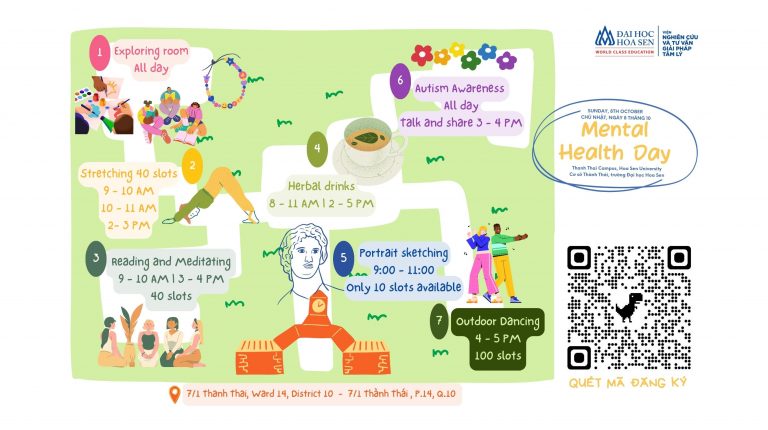CULTURE SHOCK
Culture shock is a ubiquitous topic not only for international students when they first set foot in a strange country with new things about language, lifestyle, customs, and traditions, but also for international students. with anyone when they encounter a new situation, culture, or region in their own country that they do not recognize. This article will discuss three main points including culture shock, four stages of culture shock, and some ways to deal with culture shock.

According to Adler (1981), culture shock is a set of emotional reactions to the loss of familiarity from one’s own culture to the stimuli of a new culture with which we have little knowledge. or do not clearly understand the meaning of things, events or phenomena or experience new things and can lead to misunderstandings (page 13). In other words, people who do not have enough information about the place they are going are likely to experience culture shock.
Scholar Oberg (1954, 1960) was the first to introduce the term ‘culture shock’ to describe the experience of migrants from one culture to another. Oberg defines culture shock as the overwhelming anxiety caused by losing all of our familiar signs and symbols of social interaction.
According to scholar Oberg (1986), some examples of culture shock are given such as:
- Anxiety about the food of a new place or country,
- Students from grade 12 to university,
- A person from the countryside comes to the city to live or work or visit relatives
- Switching jobs from one company to another,
- Doctors and medical staff from the North to the South during the recent COVID-19 period have shown that in the fight against the epidemic, they are not immediately familiar with the dishes or spices of the South, or vice versa, or vice versa.
- Anxiety when interacting with members of other countries, the feeling of not wanting to learn the language of the host country, the feeling of wanting to return to one’s own country, the place of one’s birth.
Therefore, the issue of culture shock is an important point to be discussed because this issue is constantly present in daily activities in broader areas such as ideology and social institutions.

Next, we will discuss the stages of culture shock. According to research in psychology and anthropology by Oberg (1960), there are four stages of culture shock: excitement stage, crisis stage, adjustment stage, and acceptance stage.
- According to Oberg (1960), the first stage is the interest stage. This stage is also known as the infatuation stage the honeymoon stage or the excitement stage about new things or exciting new experiences. Newcomers often enjoy a very fun, happy, beautiful, exciting time and are less afraid of the culture of the new place.
- After phase 1, the excitement will gradually decrease. We will move to the second phase, the crisis phase. Oberg (1960) describes how people in this crisis often exhibit unpleasant, hostile, and aggressive attitudes toward the new place and begin to form and develop prejudices. This stage is characterized by feelings such as loss, apathy, confusion, disorientation, isolation, self-blame, feelings of inadequacy, and loneliness. Personal crises can occur. This may be a result of the above problems increasing and having more negative experiences. Newcomers to a new culture may develop feelings of helplessness and confusion that come with a lack of control and a desire to go home and for example the culture shock of a crisis period.
- The third stage is the adjustment stage – At this stage of adjustment, people are often in a new environment or abroad for a while and they realize that they have to accept differences and deal with problems. with humor or with a survivalist attitude
- The fourth stage is the acceptance stage. After tourists go through a learning process, individuals are likely to adopt a new culture. It is at this point that we go through the final stage of adaptation or acceptance. During this stage, newcomers to a new place often accept the new culture as a different way of life. They begin to understand and accept the culture of the place they come from and realize that they are living in a new environment and that this environment will not change for them and that they must adapt to this new situation and the example of the new generation. stage of adapting and successfully building relationships with family and friends abroad

Ultimately, culture shock can make you feel tired, sad, lonely, and lost. This is something that most of us encounter all the time, especially when going to a strange place, but thanks to that we always know how to solve them to survive better. Here are some effective ways to overcome culture shock:
- First, acknowledge your feelings of being overwhelmed by your surroundings and believe that you are not alone because there are many people like you;
- Next, everyone has more or less experienced culture shock; Therefore, the best way is to carefully prepare culturally, or observe to behave appropriately in the current situation;
- Next, when we encounter something new or different, or if we do not understand, we should boldly ASK to more accurately understand the layers of meaning behind words and behaviors in communication;
- In addition, if we dare to go beyond our comfort zone to be open to accepting new things and differences, cultural shock will gradually decrease and we will integrate better and communicate more effectively with people;
- Finding people who understand multiculturalism or empathize with you to share your feelings and participate in exchanges, classes, groups, workshops, and seminars on multiculturalism will help you become a change agents and help you. help others like yourself;
- Finally, joining the family according to custom is important because each place is different so we should not immediately impose our outlook on life and worldview into one culture. We should learn, share, exchange, adjust, and adapt to good and new things, and become people who understand, respect differences, and empathize.
At this point, we would like to close the topic of culture shock. We hope that the above knowledge will help you have better cultural shock responses based on a scientific basis.
Author: MSc. Doan Thi Ngoc – Teacher of Faculty of Social Sciences and Law – Hoa Sen University

References:
















